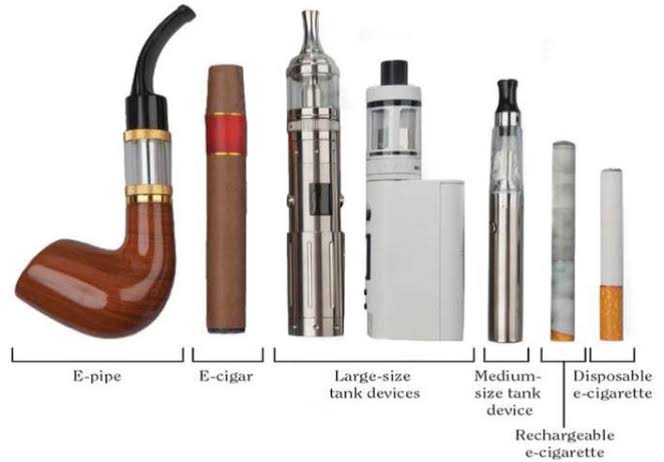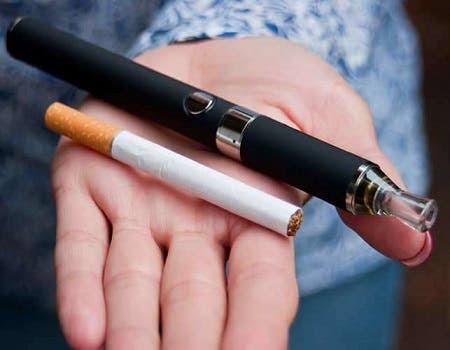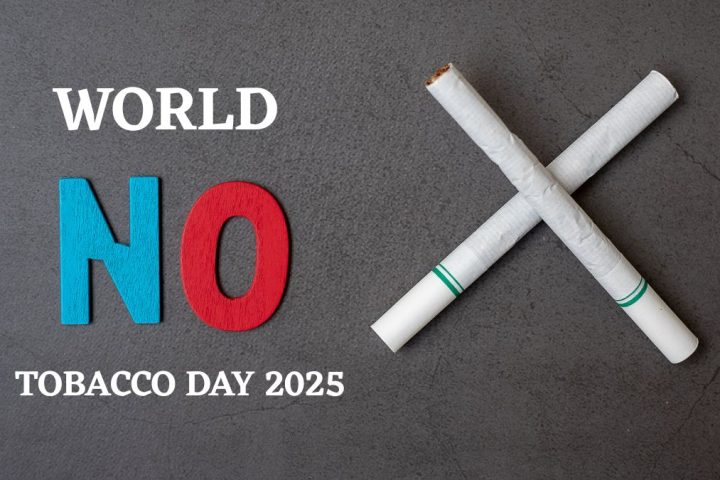TOBACCO epidemic is one of the biggest public health threats the world has ever faced. No matter how you smoke — be it e-cigarettes, menthol cigarettes, Ciga, Hookah and others — they are all dangerous to your health. There are no safe substances in any tobacco products, from acetone to tar, nicotine and carbon monoxide, all the substances you inhale don’t just affect your lungs but your entire body. And here is how it happens:
 Mouth; Yellow-stained Teeth:
Mouth; Yellow-stained Teeth:
The teeth have pores, just like the skin. The nicotine and tar in tobacco easily absorb into these pores causing a yellow or brown discolouration. Although nicotine, by itself, is colourless, when combined with oxygen, it turns yellow. Even electronic cigarettes with nicotine-infused “ejuice” can stain your teeth. Brushing your teeth several times a day is one way to improve your appearance.
Join our WhatsApp ChannelNose; Loss of Smell:
The number of cigarettes smoked—the more you puff, the more you damage your sniffer (smell receptor). Smoking actively or even passively degrades all the properties of smell by destroying olfactory cells and thus causes a disturbance in the recognition of smells. Luckily, the alteration of these senses is temporary.
Lungs; Bronchitis and Emphysema:
Cigarette smoking or being around damaging fumes (such as industrial fumes) can break down your body’s defence against infection. People who smoke are more likely to get acute bronchitis and to have it longer.
Systemic Effect; Poor Blood Circulation and Shortness of Breath:
The alveoli supply oxygen to the blood, but Carbon monoxide found in cigarettes displaces oxygen and binds to them, causing blood oxygen deprivation and shortness of breath.
Brain; Addiction:
Ten seconds after smoking, nicotine is released and when it gets into the brain, it stimulates the feel-good hormones Dopamine and Serotonin. The surge of endorphins in the reward circuits of the brain causes a slight, brief euphoria when nicotine is administered. This surge is much briefer than the “high.”
Stroke and Heart Attack:
Nicotine goes to the blood vessels, making them smaller and restricting the flow of blood to vital organs like the heart. Smoking can also affect your body’s cholesterol levels; it reduces the levels of ‘good’ HDL cholesterol and increases the levels of ‘bad’ LDL cholesterol. Higher levels of LDL cholesterol increase your risk of stroke.
Harmful to Body Cells; Cancer:
Arsenic and Nickel chemicals found in Cigarette damages the DNA cells compromising the ability of the body to fight cancer. One of every three cancer death is due to smoking and not just lung cancer but other multiple organ and tissue cancers.
Vision Impairment:
Smoking can lead to vision loss. Studies show smoking increases the risk of age-related macular degeneration, cataracts, glaucoma and diabetic retinopathy and Dry Eye Syndrome.
Osteoporosis:
Smoking decreases the body’s absorption of calcium, which is necessary for vital cellular functions and bone health. Nicotine in cigarettes slows the production of bone-producing cells.
Infertility in Women:
Chemicals in cigarette smoke speed up the loss rate of eggs. Unfortunately, once eggs die off, they cannot regenerate or be replaced. This means that menopause occurs 1 to 4 years earlier in women who smoke (compared with non-smokers).
Men; Erectile Dysfunction
The risk of smoking to your erectile health is due to the effects of cigarette chemicals on the blood vessels in the penis.
Second-hand smoking
 Second-hand smoke is referred to as the fumes that are emitted when smokers use cigarettes: Secondhand smoke (SHS) has the same harmful chemicals that people who smoke inhale. There’s no safe level of exposure to secondhand smoke (SHS). Breathing in someone else’s tobacco smoke increases your risk of stroke, non-smokers who live with smokers are almost twice as likely to have a stroke than those whose partners don’t smoke.
Second-hand smoke is referred to as the fumes that are emitted when smokers use cigarettes: Secondhand smoke (SHS) has the same harmful chemicals that people who smoke inhale. There’s no safe level of exposure to secondhand smoke (SHS). Breathing in someone else’s tobacco smoke increases your risk of stroke, non-smokers who live with smokers are almost twice as likely to have a stroke than those whose partners don’t smoke.
Help quit and Nicotine replacement therapy (NRT)
Nicotine is a highly addictive substance and can be hard to quit. You might have to try many times to quit before you manage to kick the habit, but getting hemp from specialists to quit makes it four times more likely that you will stop the habit. Because smoking is so harmful to public health, many governments and agencies have put in place programmes to support people who want to quit. Some of these provide access to personal support, online tools and nicotine replacement therapy (NRT), which gives you nicotine in the form of gum, patches, sprays, inhalers, or lozenges without the other harmful chemicals in tobacco.
If you want to stop, talk to a doctor or pharmacist about local programmes or look online for services that might be available to help you quit.















Follow Us